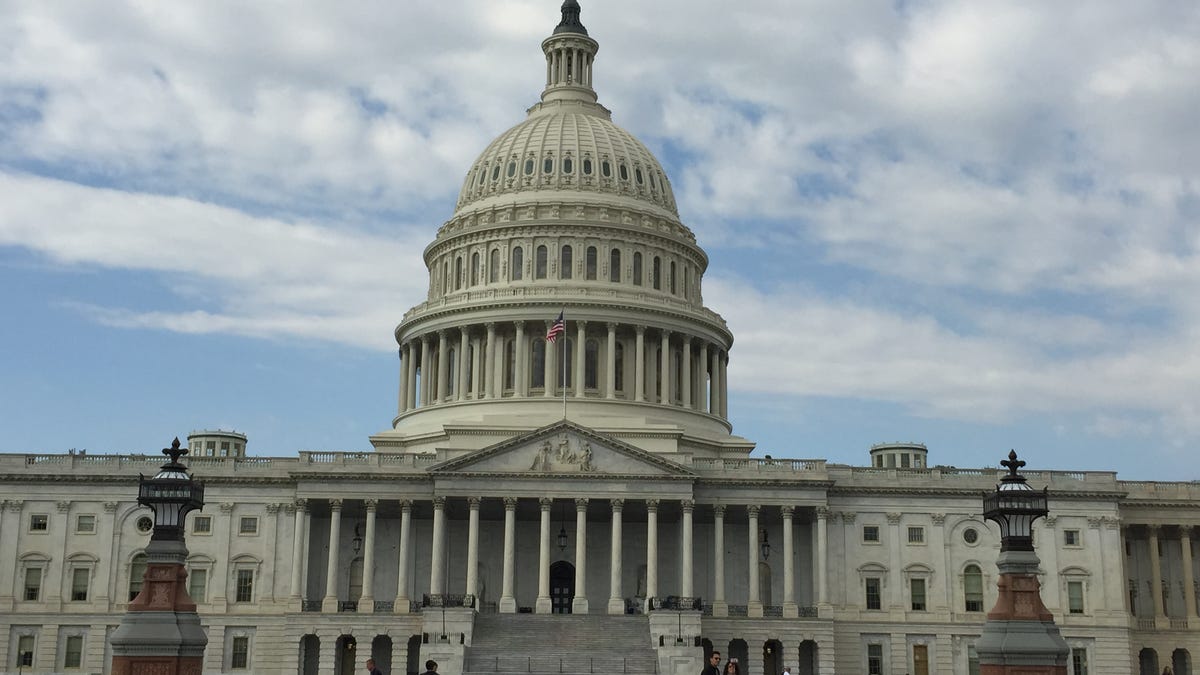Senate passes bill to curb robocalls
Republicans and Democrats agree on at least one thing: Robocalls must be stopped.

The Senate overwhelmingly passes legislation to stop robocalls.
The Senate voted Thursday in favor of bipartisan legislation to help stop annoying robocalls on your phone.
The Telephone Robocall Abuse Criminal Enforcement and Deterrence (TRACED) Act passed 97-1 and had more than 80 co-sponsors.
The bill, introduced by Sens. John Thune, a Republican from South Dakota, and Ed Markey, a Democrat from Massachusetts, would improve enforcement policies, such as criminalizing illegal robocalling, and also improve coordination between agencies policing robocalls. It would also require phone companies to use a new technology protocol called SHAKEN/STIR, which would validate that calls are originating from where they claim to be coming from and would allow for faster tracing of illegal calls to find out who's responsible for them.
Thune said it's important to up the ante in the fight against these calls and to establish criminal penalties to put illegal robocallers "behind bars."
"This bipartisan, commonsense bill puts a bullseye on the scam artists and criminals who are making it difficult for many Americans to answer the phone with any bit of confidence about who's on the other end of the line," he said.
Americans received 47.8 billion robocalls last year, according to a Federal Communications Commission report released in February. Nearly 50% of those calls were from scammers. The report also highlighted that the number of complaints about illegal robocalls has been increasing, jumping from 172,000 complaints in 2015 to 232,000 complaints in 2018.
Robocalls use autodialers and recorded messages to make millions of phone calls. Often the numbers that show up in caller ID appear to belong to friends or neighbors, when they're actually "spoofed." These calls hide the real number to trick people into answering the call. The FCC has adopted some policies to reduce the number of calls people get, but Congress is also stepping in to ensure the agency has what it needs to give its policies teeth.
The issue cuts across party lines and has proved to be an issue politicians on both sides of the aisle can support.
"There are no blue robocalls or red robocallers," Markey said. "And I am proud to partner with Sen. Thune on this critical consensus legislation. Our colleagues in the House of Representatives must heed the public's cries, pass this bill, and send it to the president's desk."
The TRACED Act is supported by all 50 state attorneys general, the FCC and the Federal Trade Commission, as well as several industry associations and consumer groups.
"This is a very big deal for industry's multipronged effort to battle back against illegal robocalls," said Jonathan Spalter, president and CEO of USTelecom. "Today the Senate delivered a loud and clear message to the criminals who scam and spoof consumers: More blocking, more fines and more criminal enforcement is coming."
Rep. Frank Pallone, a Democrat from New Jersey, and the chairman of the Energy and Commerce Committee, is also pushing a bill to end robocalls. Earlier this year he reintroduced the Stopping Bad Robocalls Act, which would ban more kinds of robocalls and let consumers opt out of robocalls at any point, among other requirements.
The FCC is also working to curb these annoying calls. Earlier this month FCC Chairman Ajit Pai circulated a proposal to allow wireless carriers to block robocalls for customers by default. Companies would also allow consumers to block calls from unknown numbers themselves.
"I commend the US Senate for passing the TRACED Act ... [which] would help strengthen the FCC's ability to combat illegal robocalls," Pai said in a statement. "We would welcome these additional tools to fight this scourge."

